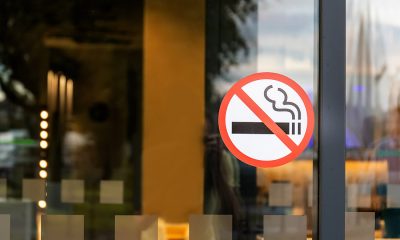411
New Smoking Laws for South Africa Spark Outcry Over Lack of Consultation

The South African government’s move to introduce strict new smoking and vaping regulations has ignited strong opposition from key stakeholders who feel left out of the legislative process. With Parliament advancing the Tobacco Products and Electronic Delivery Systems Control Bill, intended to curb smoking rates and protect public health, criticism has surged from organizations like the National Economic Development and Labour Council (Nedlac) and representatives from small businesses.
Key Changes Proposed by the Bill
The bill, aimed at reducing tobacco use among South Africa’s smoking population of 29.4%, introduces regulations such as:
- Mandatory plain packaging featuring graphic health warnings.
- 100% smoke-free zones in public areas, including certain outdoor spaces.
- Bans on tobacco product displays at points of sale and on vending machines.
- Elimination of single cigarette sales, impacting small business revenue.
If enacted, these measures align South African policy with the World Health Organization’s Framework Convention on Tobacco Control.
Opposition Over Lack of Consultation
A focal point of contention is the absence of proper engagement with Nedlac, a tripartite council that includes representatives from government, labor, and business sectors. Critics argue that proceeding without comprehensive consultation violates the Nedlac Act’s spirit, jeopardizing the bill’s legal standing.
According to Nedlac’s executive director, Lisa Seftel, “The Nedlac social partners are very disturbed that the bill will proceed without sufficient consultation as per the Nedlac protocol on bills which have socioeconomic implications.”
Business convener Kaizer Moyane called for a halt to the process, saying, “Running the process without the views of the social partners would be robbing Parliament of the richness of their expertise.”
Concerns from Small Businesses and Informal Traders
Small-scale vendors, represented by the National Informal Traders Alliance of South Africa (Nitasa), foresee significant setbacks. For many hawkers, spaza shops, and kiosks, single cigarette sales are critical for driving additional purchases. Nitasa President Rosheda Muller stressed that “active participation in the legislative process is vital because it ensures that the voices of those directly affected are heard.”
The organization also highlighted concerns that the bill’s clauses could criminalize these vendors and push them towards an illicit market. Muller warned, “If these clauses are not reviewed, South Africans earning an honest living will become criminals overnight.”
Government’s Response and Path Forward
In response to these objections, the Department of Health clarified that Nedlac was consulted in 2021 and 2022, prior to the bill’s introduction. Dr. Sibongiseni Dhlomo, chairperson of the Portfolio Committee on Health, affirmed that legal requirements for consultation were met but maintained that the door remains open for further engagement.
While the bill’s opponents continue to advocate for modifications, the legislation’s trajectory remains strong. If enacted, it will impact numerous sectors, from small businesses and informal traders to tobacco farmers and the broader public.
As the debate unfolds, stakeholders are calling for balanced legislation that reduces tobacco use while addressing socioeconomic concerns and supporting affected communities.

















